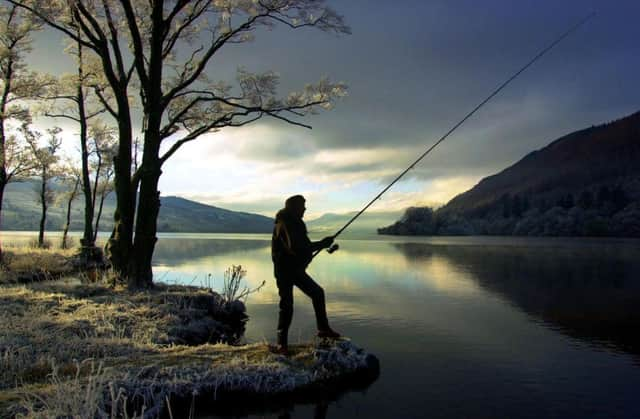Net result could be better fish stocks


THE Game and Wildlife Conservation Trust (GWCT) believes in “conservation through wise use”; the incentive of a sustainably harvestable resource be it deer, grouse or trout as a way of producing more wildlife in general. Our research over the last 75 years highlights that this approach can work very well.
Declining wild, brown trout populations were researched in the early 1990s to try and halt the declines and improve successes through habitat management. This was followed by the River Monnow Project in Wales, which aimed to rejuvenate a neglected and damaged river and benefit the local community. The habitat restoration was the largest ever river habitat restoration project.
Advertisement
Hide AdAdvertisement
Hide AdThe Trust took over the East Stoke Salmon and Trout Research Centre in Dorset and continued the monitoring of salmon which started with the installation of a fish counter at the site in 1973. This data series makes it one of the most comprehensive records of salmon movements in Europe.
The research into the causes of the decline of salmon and how to reverse this decline is of global importance and considerable national interest has been sparked at the start of our salmon fishing season with a debate on the impact of the use of salmon nets.
Salmon netting has been a traditional use of the once plentiful fish that come to our rivers to breed. Netting has been undertaken around the coast of Scotland in different ways; from fixed “engines” to the “haaf” netting of the Solway coast. Recognising the challenges facing salmon stocks that GWCT also see in our fishery records from the River Frome in Dorset, netsmen began a voluntary moratorium in 2000 on netting during the critical spring salmon run, continuing their business through the remainder of the season.
We support the voluntary moratorium on spring net fishing. It feels wise for people to restrict their take of a declining fish species when that cannot be demonstrated to be sustainable. This is something that is of course very difficult to show, given that there is limited positive contribution to salmon conservation at sea or on the coast, and the nets take fish returning to many rivers, not just one where conservation can then be focussed.
Rod fishing also results in the killing of some salmon and there is an active debate as to whether rod or net takes a greater proportion of fish. However rod fishing for salmon is increasingly associated with three activities that suggest sustainable management. Firstly, the monitoring efforts in place on most major rivers which allows an assessment of the balance of production against take in a particular system. Secondly, the increase in catch and release particularly during the spring run. Catch and release is important as it allows anglers to continue to fish even when the salmon population in a particular river drops below that which can sustain a harvest. It’s not perfect – but the ongoing activity on the bank ensures that the large sums of money spent by salmon anglers on conservation continue to flow into areas of need.
Finally the angling community’s personal and financial investment in a salmon river’s conservation plan can be shown to improve the conservation of the species.
Rod fishing appears to fulfil many of the criteria of wise use and would therefore be supported by GWCT. But for these reasons GWCT feels it would be wise for the voluntary moratorium on spring netting operations to be continued until a collective agreement can be reached with the many other bodies associated with the mixed stock fishery. We believe taking a harvest of any species should demand a positive contribution to sustainable management.
There is much research still to be done. Further studies into the impacts of hydro-electric power stations on the downstream migration of Atlantic salmon smolts are topics of real interest. We hope future research can allow for fish-friendly designs being implemented into the construction of new hydro-electric power stations.
Advertisement
Hide AdAdvertisement
Hide AdThere will certainly be much to discuss in the forthcoming Scottish Government review of fisheries management.
• Dr Adam Smith is director Scotland of the Game and Wildlife Conservation Trust
SEE ALSO